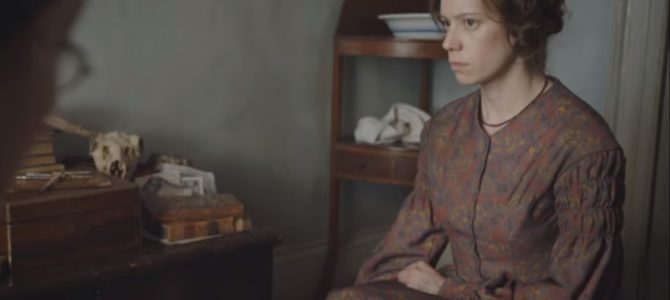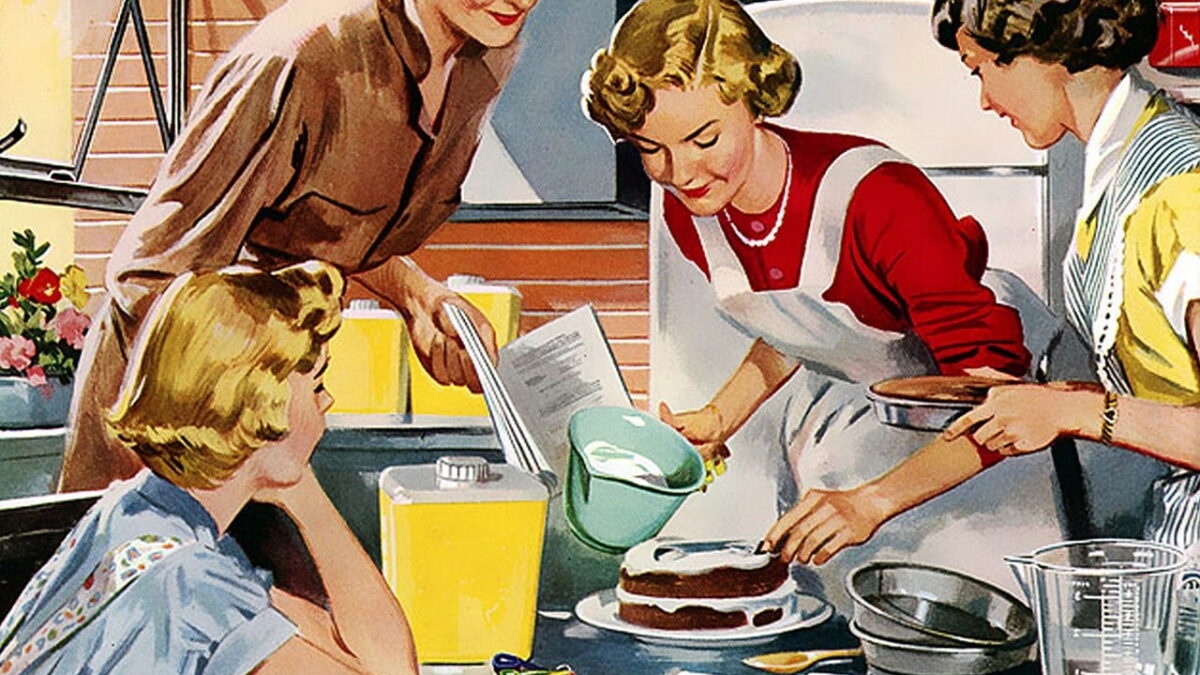
The Bronte Society has chosen a supermodel to work with them on a film about the romantic hero of Emily Bronte’s “Wuthering Heights” for an upcoming celebration of the author, and one man’s decision to criticize their choice has feminists up in arms, crying sexist. Their fury raises the question: is it ever okay to criticize a woman in this political climate?
Bronte (1818 – 1848) is one of my favorite authors. Her only published novel, “Wuthering Heights,” is now widely regarded as a classic of English literature. This July 30th would have been her 200th birthday. The Bronte Society in Haworth, United Kingdom, one of the oldest literary societies in the world, has planned many activities to mark this bicentennial event. The society announced in December it had chosen former U.K. supermodel Lily Cole to be a “creative partner” in the society. One of her assignments is to produce a short film on Heathcliff, the tortured romantic hero of “Wuthering Heights.”
Cole’s mandate was to “consider gender politics and women’s rights” in 2018 (this year also marks the 100th anniversary of women’s suffrage in the U.K.). She became a supermodel at age 16. After ending her successful modeling career, she has become an actress and self-described social entrepreneur and political activist.
Her movie credits include playing the party girl Lovey in “The Last Jedi.” None of her roles are critically acclaimed. She also directed two short documentary films, including one on volunteers who work with refugees on the Greek island of Samos. It’s fair to say that Cole is accomplished, but she is certainly no Bronte expert, and her directing experience is still pretty raw.
But when Nick Holland, a long-time Bronte society member, author, and well known literary critic who specializes in the works of the Bronte sisters, announced he is leaving the society because of Cole’s appointment, feminists pounced. He explained in a blog post he disagrees with the choice because he feels it’s a result of nepotism more than talent, and because Cole is not a writer. He also describes a one-time encounter with Cole’s acting in a theater.
“A few years ago I had a front row seat of a new play about Helen of Troy at Manchester’s Royal Exchange Theatre,” he wrote. “Lily had the title role, and the play was so bad that it is the only one I have ever walked out of at the interval. … This was, quite simply, the worst play I have ever seen.”
“How can anyone have thought that this made her a suitable choice to be in charge of Emily Bronte’s celebration year?” he added. “What would Emily Brontë think if she found that the role of chief ‘artist’ and organiser in her celebratory year was a supermodel?”
He further explained, “I have nothing against Lily herself, other than her terrible acting, but against the people who selected her.” Holland reasoned that the Bronte society chose Ms. Cole not because of her qualifications, but out of the desire to attract a younger audience. In Holland’s opinion, “The very basic rule should have been that the person chosen for such an important role as creative partner is a writer.”
At the end of his post, Holland declared that he would resign from the society: “I can no longer continue to be a member of the Brontë Society whose leaders’ views are so opposed to my own. It’s best that I leave the society now, before they announce James Corden as the creative partner for 2019, a year in which Patrick Brontë is being remembered, and Rita Ora as organiser for Anne Brontë’s celebrations in 2020.”
It’s apparent to me Holland wrote his blog out of passion and frustration, but he didn’t come off as a misogynist. However, feminists and progressives in the U.K. are deeply offended. Holland was widely criticized. Some people argue that Cole is well qualified to be the chief artist for the Bronte society because she has a major in art history from Cambridge and she once led a campaign to save a book store. But most comments focused on criticizing Holland. He was called a sexist, elitist, pearl-clutching book snob. Some say that Holland’s blog and his criticism were skating on the edges of an infuriating male habit to control what women say and do.
One tweet says, “I really don’t think the Brontes would have had that much time for a man who judges a woman based solely on her looks, and instead purposefully ignores her mind and love of the arts.”
Cole responded to Holland’s criticism, writing in a statement, “I find myself wondering, fleetingly, if I should present the short film I am working on for the Brontë Parsonage Museum under a pseudonym myself, so that it will be judged on its own merits, rather than on my name, my gender, my image or my teenage decisions.”
Holland may be old fashioned or a literature purist. But throughout his blog, he didn’t say anything nor make any judgment about Ms. Cole’s mind, her looks or her gender, aside from mentioning she’s a supermodel. Let’s not forget Holland has devoted his professional career to studying female writers and their works.
All he did in his blog was to question Cole’s qualifications, or rather lack of qualifications, for the particular assignment she was asked to do. Yes, Cole is a bright and accomplished young woman. But she is neither a known Bronte scholar nor a critically claimed film director. Is she the right choice as the chief artist to lead the Bronte society’s commemorating events? Does she have what it takes to produce a memorable film on Heathcliff?
Had she been a man, these would obviously be legitimate questions. Yet, in this post-Weinstein, #metoo world we live in, if a man dares to ask such questions about a woman, he will immediately be chastised as a sexist and misogynist. Are modern-day women really this fragile that we can’t possibly survive any criticism from men and we have to hide behind our gender?
Women have been fighting for equality for centuries and have made tremendous progress along the way. However, it seems modern feminists have gotten lost along their journey. They say women should be judged on their merits and yet, they deny women’s agency and encourage women to embrace victim hood. Labels like “sexism” or “patriarchy” have become the easiest way to shut down even constructive criticism from a man. How can we call this progress?
More than 100 years ago, the Bronte sisters contributed to world literature with strong heroines. They didn’t do so by creating wimpy male characters. From Jane Eyre to Catherine Earnshaw, they fell in love with their equally strong-headed male characters and these ladies presented themselves as equal and dignified partners in these relationships, none shrank from any challenges their male counterpart put forward. I imagine none of these heroines and their creators would consider silencing a man from speaking his mind as a sign of gender equality and not all criticism from a man to a woman are about sexual control.
Bronte wrote, “It was not the thorn bending to the honeysuckles, but the honeysuckles embracing the thorn.” She was talking about love, but her words also speak to a fearless attitude that can apply in other contexts. As we commemorate Emily Bronte’s bicentennial birthday this year, I’d like to see more women live like honeysuckles who are not afraid to embrace the thorn.









